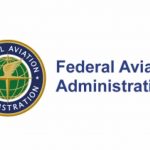Torqued: Congress’s Role in the Boeing 737 Max Accidents Needs a Look
by John Goglia
I’m thinking a lot about what happened with the Boeing 737 Max. For one thing, 346 people died in two crashes less than six months apart in almost brand-new aircraft. For another, the crashes have led to the six-month—and growing—worldwide grounding of the aircraft. As far as I can recall, this is the longest grounding of a major aircraft type. It is critical to determine, as expeditiously as possible, what brought these aircraft down, both the immediate causes of the crashes and more indirect potential causes, like Boeing’s design and manufacturing processes and the FAA’s certification of the Boeing aircraft and its oversight of Boeing.
But what about Congress’s role? Congress should not be immune to review; after all, it passed laws that authorize and even encourage extensive FAA delegations that are at the heart of much of the criticism, while approving budgets that limit FAA staffing and funding for oversight functions.
Given the loss of life and the short period between these two accidents, the crashes have spurred numerous questions about who did and didn’t do what. As I write, investigations have spread from the countries responsible for the actual airline accident investigations—Indonesia in the case of the Lion Air Flight 610 accident and Ethiopia in the case of the Ethiopian Airlines Flight 302 disaster—to multiple investigations in the U.S. Of course, the NTSB, under international law, has the right to send an accredited representative to participate in the investigations, and it has. As the U.S. is the country of design and manufacture of the aircraft, the NTSB also has the right to appoint representatives from Boeing to assist it.
But in addition to the NTSB’s participation in the probes, a wide variety of other investigations have already been announced, from the civil to the criminal. The Department of Transportation Office of Inspector General has been tasked with auditing the FAA to determine and evaluate “FAA’s overall process for certifying the Boeing 737 Max series of aircraft.” A federal grand jury convened by the U.S. Department of Justice in Washington, D.C.issued what the Wall Street Journal termed a “broad subpoena” to at least one person involved in the development of the Boeing aircraft.
And then there are the Congressional hearings. So far, hearings have been held by the Senate commerce subcommittee on aviation and space and the House Committee on Transportation and Infrastructure’s aviation subcommittee. I’m sure more will follow. But so far the gist of these discussions, at least in part, seems to be to criticize the FAA for delegating certification tests and inspections to Boeing without exercising adequate oversight. One senator condemned this practice as putting “the fox in charge of the hen house.” Another senator, chairing the hearing, condemned the close relationship between industry and the FAA as threatening to erode public confidence.
PLENTY OF BLAME TO GO AROUND
Amidst all the finger-pointing at the FAA and Boeing (who I’m quite sure deserve their share of accountability), I happened to hear an exchange between a congresswoman and the deputy director of the FBI that had gone viral. That particular hearing had nothing to do with the Boeing 737 Max but it got me thinking about who had a role in the aircraft certification but wasn’t being investigated by anyone, at least that I could find. In the exchange with the FBI, the congresswoman was asking why domestic terrorists weren’t charged as terrorists when international terrorists were. As the FBI deputy explained, differences in the law allow one group of terrorists to be charged one way and not the other. At some point, the congresswoman responds that she’s just trying to find out who is responsible, stating “maybe it’s Congress.”
Well, of course, it’s Congress. Who else writes the laws? While the President signs bills into law and federal agencies are responsible for complying with them, the laws originate in Congress. So if Congress wants to make domestic terrorism a federal crime, write the law that does that. Similarly, if Congress wants to find out what happened with FAA delegation to Boeing and its oversight of that delegation, it needs to ask itself some hard questions. Or appoint an independent body to investigate it.
After all, since at least the Federal Aviation Act of 1958, Congress has legislatively authorized the FAA to delegate authority to private individuals in recognition of the need to leverage the FAA’s limited staff. Over the years, the delegations have grown and expanded with Congress mandating in the 2003 FAA Reauthorization Act that the FAA submit to Congress “a plan for the development and oversight of a system for certification of design organizations to certify compliance with the requirements and minimum standards prescribed…for the type certification of aircraft, aircraft engines, propellers, or appliances.” The FAA did that and over time, with pressure from the industry and a recognition of its own limited resources, the delegations and designations grew to include the Organization Designation Authorization (ODA) under which Boeing was delegated certification authorities for the Boeing 737 Max.
Apparently, Congress didn’t think the FAA was delegating enough to ODA holders. Just before the first crash of the Boeing 737 Max in October 2018, Congress passed the 2018 FAA Reauthorization Act, which mandated further expansion of the ODA program, including (with some exceptions) “at the request of an ODA holder, eliminate all limitations specified in a procedures manual…that are low and medium risk as determined by a risk analysis using criteria established by the ODA Office and disclosed to the ODA holder.”
While Congress wrote laws expanding FAA delegations to the private sector, it was also responsible for authorizing the FAA and funding it. Congress is surely aware that the FAA’s certification and oversight mission covers everything aviation-related from unmanned aerial toys to manned aircraft, airlines, repair stations, aircraft manufacturers, pilots, and more. The FAA does this with a staff of 7,000 in the Aviation Safety Office according to its 2019-2028 workforce plan. Of those 7,000 employees, 1,341 are employed in the certification office and 5,012 in flight standards, with approximately 15 percent in non-technical support roles. That’s not a lot of people for such an expansive mission.
At the same time that Congress is passing delegation laws and funding for the FAA, many of its members are also accepting campaign donations from aircraft manufacturers, such as Boeing, which clearly have an interest in pushing the FAA to delegate more and more authority to manufacturers with as little oversight as possible. In 2018, Boeing reportedly spent $18 million on lobbying efforts, including lobbying Congress on issues related to the 2018 FAA Reauthorization Act, with approximately 330 members of Congress reportedly receiving campaign funds.
So, if we’re truly going to get to the bottom of what went wrong with the Boeing 737 Max, someone has to ask Congress some tough questions.




